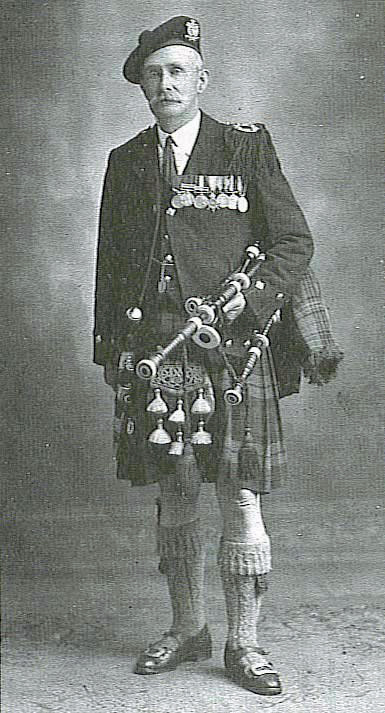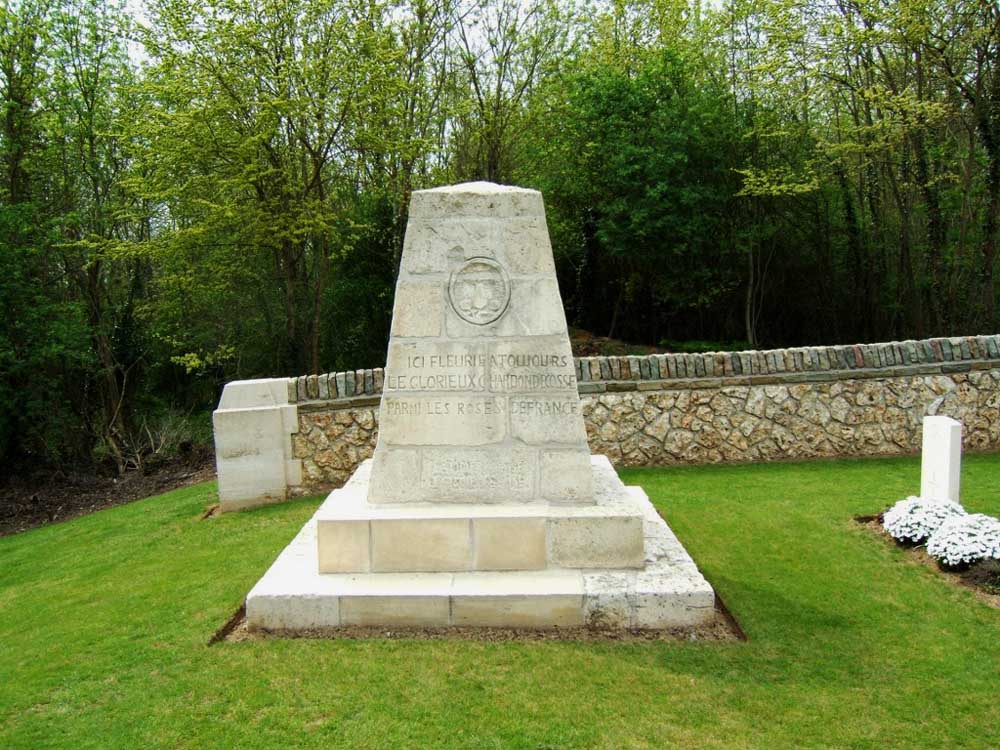John McLellan, Dunoon: composer and poet

The music of John McLellan is part of every piper’s repertoire. “Lochanside,” “The Highland Brigade at Magersfontein,” “The Road to the Isles” and “South Hall” are staples written by creative genius, who was born in 1875 in Dunoon, Scotland. At age eight, after his father died, he moved with his family to his mother’s native the Isle of Jura, eventually returning to Dunoon
He became pipe-major with the 8th Argyll & Sutherland Highlanders in 1919, just after World War I ended, following James Wilson and, before Wilson, Willie Lawrie in the role. Before the 8th Argylls, McLellan was a piper the Highlight Light Infantry in the Boer War, during which he was awarded the Distinguished Conduct Medal for gallantry in battle. “DCM” often deservedly accompanies his name, and also distinguishes him from other prominent John Mac/McLellans in piping.
A “gentleman bachelor” known as “Jock” to his friends and family, his relatives are many, including his great-grand-nephew, the Gold Medallist Alasdair Henderson; the former pipe-major of the Grade 1 Babcock-Renfrew Jim Henderson (who taught Stuart Liddell); and Andrew Gallagher, his grand-nephew who lives in Redhill in the county of Surrey, England.
In addition to composing music, McLellan was a recognized poet, and would often add lyrics to his compositions, which, incidentally, entered the public domain in 2019, 70 years after his death.
Andrew Gallagher was in touch recently with “Buzancy,” a poem McLellan wrote to commemorate a World War I battle in May 1918 at the town in northern France , where Scottish and French forces defeated their German counterparts, but with heavy losses on each side.
Buzancy
Away on the grey fields, by lonesome Buzancy,
Lie the bones of our comrades of the tartan and blue,
Where they fought side by side with the same dash and glory;
Where they suffered and fell of the land that they lo’e.
The wee birdies sing o’er the heroes that slumber,
The wild roses bow to the gay poppies’ dance,
And the Thistle of Scotland will flourish for ever,
On the plains of Buzancy ‘mid the roses of France.
Away o’er the grey fields the dark dawn is breaking,
And the black, dreary war-cloud will soon pass away,
But there’s many a fond heart at hame will be aching
For the gallant young heroes that lie in the clay.
The proud rampant lion will aye stand for freedom;
The French flag will wave to the proud victor’s glance,
And the Thistle of Scotland will flourish for ever,
On the plains of Buzancy ‘mid the roses of France.
McLellan noted that the poem could be sung to the tune “Flow Gently, Sweet Afton.”
The commander of the relieving French division, General C. Gassoins was so moved by the result of the battle that he ordered the construction of a memorial. Inscribed on it are McLellan’s uncredited lines in French, “Ici fleurira à toujours le glorieux chardon d’Ecosse parmi les roses de France.” “Here will flourish for ever the glorious thistle of Scotland amid the roses of France.”

In 2014, Gallagher travelled to Buzancy, France, to visit the memorial.
“I went to Buzancy to see the monument built after the battle,” Gallagher said. “I recited the poem and my friend Graham Waller played ‘The Bloody Fields of Flanders.’ It was a very moving experience, among the graves of all those young Scots.”
Our thanks to Andrew Gallagher for sharing the poem and various images.
Related
 A rare image of a rare piping legend
A rare image of a rare piping legend
November 23, 2018
 “Lochanside” – a magical tune about a magical place
“Lochanside” – a magical tune about a magical place
May 5, 2018

NO COMMENTS YET